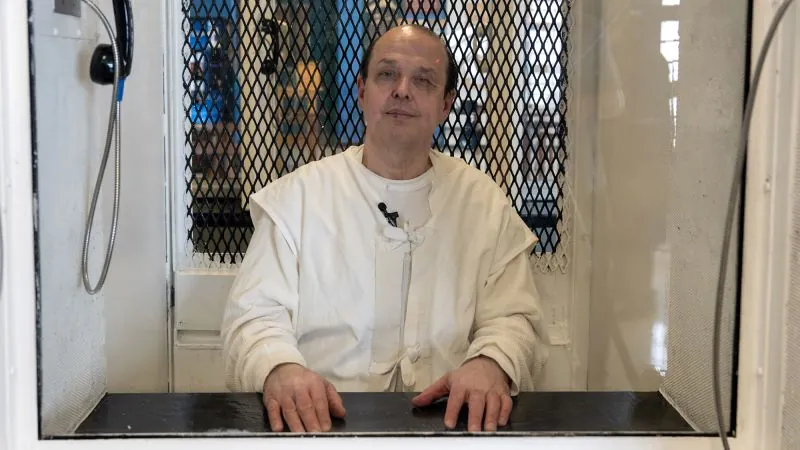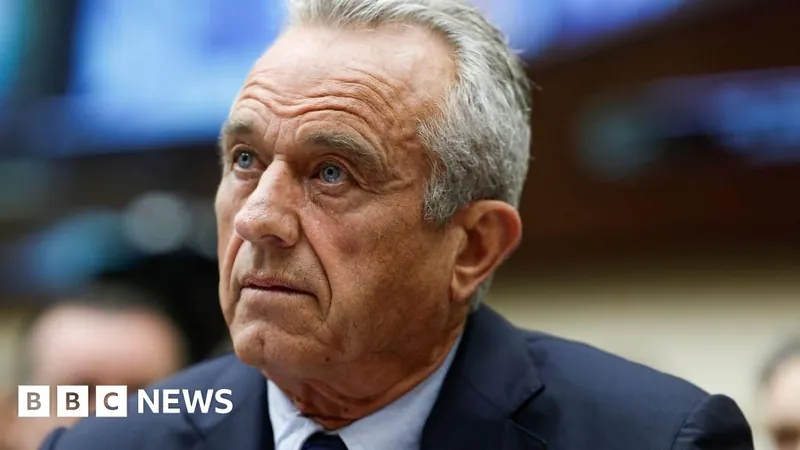
Robert Roberson's Execution Looms as New Evidence Emerges in Heartbreaking Case
2024-11-15
Author: Jacob
Texas Supreme Court Clears Path for Execution
The Texas Supreme Court has recently cleared the way for the execution of Robert Roberson, a man convicted in the tragic 2002 death of his 2-year-old daughter, Nikki Curtis. While a state House committee is pursuing his testimony amid claims of potential innocence, the clock is ticking for Roberson as a new execution date is now set to be established.
Controversial Diagnosis at the Heart of the Conviction
Roberson, 57, was originally slated for execution in October, but that was put on hold when the Texas House Committee on Criminal Jurisprudence moved to subpoena him for evidence of his innocence. The Supreme Court’s ruling now opens the door for a fresh execution date to be determined by a state court judge.
Key to Roberson's conviction was the controversial diagnosis of shaken baby syndrome attributed to Nikki's death. However, his attorneys argue that this diagnosis is deeply flawed. "This case highlights how rushing to judgment can lead to devastating consequences," said Gretchen Sween, Roberson’s attorney. She insists the posthumous evidence of innocence is compelling, noting that medical experts now believe Nikki succumbed to undiagnosed pneumonia rather than abuse.
A Tragic Narrative
Sween describes Nikki's death as a tragedy, not a crime, emphasizing how new forensic reports present a narrative that contradicts the original allegations of child abuse. "It's a heart-wrenching case that shows how medical misunderstandings can ruin lives," she stated, elaborating on the various factors contributing to Nikki’s condition, including previous illnesses and inappropriate medications.
Growing Support for Roberson
Roberson’s fight for justice resonates strongly within Texas, as numerous lawmakers—including bipartisan support—are actively voicing their concerns regarding the integrity of his conviction. The case has attracted supporters from various backgrounds, including former detective Brian Wharton, who oversaw the original investigation, and more than 30 medical experts who question the validity of the shaken baby syndrome diagnosis. Even notable figures like author John Grisham have added their voices to the calls for clemency.
The Perils of Capital Punishment
Highlighting the urgency and potential misjudgments in the criminal justice system, Roberson's situation sheds light on a grim reality: innocent lives could be lost amidst the push for capital punishment. Since 1973, at least 200 individuals have been exonerated after being wrongfully convicted, according to the Death Penalty Information Center.
Ongoing Debate and Complications
As the debate over shaken baby syndrome continues, with a growing number of experts raising concerns about its broad application in court, Roberson’s case reflects the complexities and perils of the legal system. The possibility of facing capital punishment backed by questionable evidence amplifies fears surrounding due process violations.
Complicating matters further, the Texas Court of Criminal Appeals recently ordered a new trial for another inmate based on similar concerns regarding shaken baby syndrome. Roberson's supporters argue he should also benefit from this reconsideration of innocence claims.
Awaiting a Pivotal Judicial Response
As the state prepares to establish a new execution date for Roberson, his supporters hope that their voices will be heard, leading to an examination of the new evidence that could potentially spare his life. "No Texan wants an innocent man executed," Sween concluded, underscoring the moral implications entwined in the ongoing struggle for justice.
The Broader Conversation
This case has become emblematic of the broader conversation about the validity of medical diagnoses in criminal cases and the necessity for a justice system that truly aims to protect the innocent. The countdown to Roberson's execution hangs in the balance, awaiting a pivotal judicial response to the calls for justice.









 Brasil (PT)
Brasil (PT)
 Canada (EN)
Canada (EN)
 Chile (ES)
Chile (ES)
 España (ES)
España (ES)
 France (FR)
France (FR)
 Hong Kong (EN)
Hong Kong (EN)
 Italia (IT)
Italia (IT)
 日本 (JA)
日本 (JA)
 Magyarország (HU)
Magyarország (HU)
 Norge (NO)
Norge (NO)
 Polska (PL)
Polska (PL)
 Schweiz (DE)
Schweiz (DE)
 Singapore (EN)
Singapore (EN)
 Sverige (SV)
Sverige (SV)
 Suomi (FI)
Suomi (FI)
 Türkiye (TR)
Türkiye (TR)